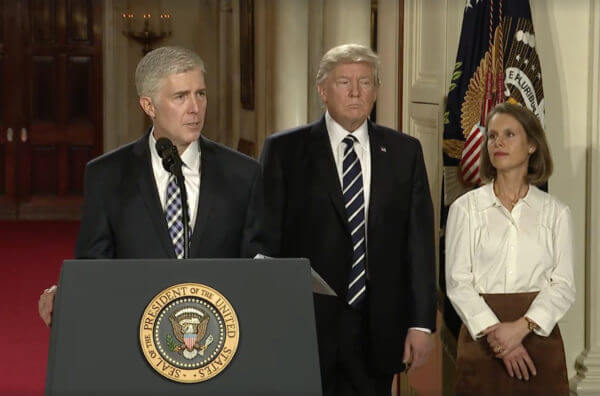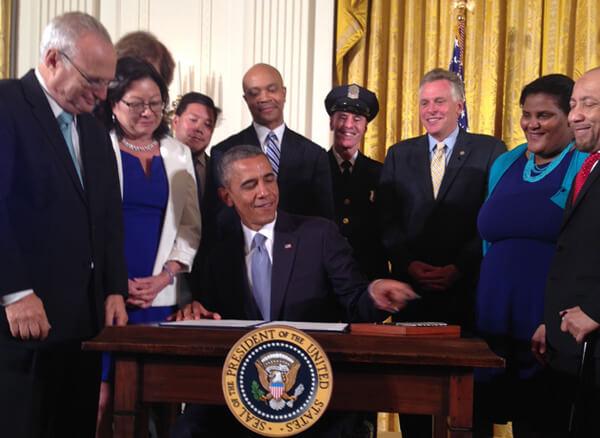It would be an understatement to say that the 2018 Affordable Care Act open enrollment period began under a dark cloud of uncertainty. With the Trump administration regularly declaring that the ACA marketplace is imploding, gutting enrollment funding, and slashing cost-sharing subsidies, it is understandable that Americans have reservations about purchasing health insurance.
Yet one month into open enrollment, numbers so far are higher than expected across the country. Americans are voting with their wallets and the message is clear — coverage under ACA is a good investment.
I would urge any New Yorker who is eligible to sign up before this open enrollment ends on January 31. (To start coverage by January 1, the deadline was December 15, and the January 31 deadline is New York State’s extension of the federal ACA deadline.)
PERSPECTIVE: Health Care Is a Right
High enrollment rates are no surprise when you remember what dealing with health insurance was like before the ACA. People with pre-existing conditions were excluded or priced out of access; people with cancer and other severe health problems went bankrupt due to caps on benefits or gaps in coverage; there was no guarantee that insurance plans would cover essential care (such as mental health and pregnancy); uninsured rates were shamefully high due to prohibitive premiums.
The ACA has given us the luxury — what I would call a basic human right — of having increased peace of mind that our regular and unexpected healthcare needs will be taken care of without losing our homes or ending up on the street.
For any New Yorkers who are currently deciding between purchasing an ACA plan, taking a chance on a short-term private plan, or rolling the dice by being uninsured in 2018, there are several strong arguments for choosing an ACA plan.
First, despite the current administration’s false claims, the ACA marketplace has demonstrated sustainability. In New York, we have a robust number of insurance plans to accommodate people at different income levels and with diverse healthcare needs. Although there have been increases, premiums remain lower than what New Yorkers paid prior to the ACA. Certainly the ACA marketplace needs to be strengthened and improved, and bipartisan legislation has been drafted in the US Senate to do just that.
Second, ACA policy holders benefit from several legal protections. ACA policies must cover 10 essential healthcare needs. Applicants may not be denied coverage due to a pre-existing condition. Those who qualify receive cost-sharing subsidies to reduce the cost of premiums. Health insurance providers may not charge higher rates to policy holders based on their age or a pre-existing condition.
Short-term private health insurance plans may appear at first to be an attractive alternative to ACA policies due to their lower premiums, but you get what you pay for — limited benefits with high deductibles. For example, consider a 27-year-old male who is between jobs and opts for a short-term policy. One month later, he’s hit by a car while crossing the street and needs emergency care as well as physical therapy for a full recovery. His plan does not cover physical therapy, so he must choose between going without or paying out-of-pocket.
You may also be tempted to go without health insurance, believing you can do without or that you simply cannot afford coverage. But that is a gamble. Perhaps you will remain healthy while uninsured. Perhaps you will break a leg or experience cardiac arrest and have to get emergency medical care. Uninsured people tend to rely on the emergency room for their primary and emergency medical needs, straining state and federal budgets and reducing available funding for other needed programs. Not only does this redirect funding from critical programs, but it also negatively impacts health outcomes.
Uninsured people are less likely to seek the preventive care necessary to maintain good health and may need to wait to go to the emergency room until their medical condition has escalated.
Finally, if you fear an ACA policy will be too expensive, I highly recommend making an appointment at a Navigator Site to receive health insurance counseling (call 888-614-5400 to make an appointment or visit nystateofhealth.ny.gov/aca). Or do some comparative shopping on your own. Either way, make sure to review the costs of all levels of coverage to evaluate which one will be the best match financially.
In the 21st century, healthcare should be a human right, and I have long supported legislation to create a single-payer system to deliver that right to everyone. In the meantime, the Affordable Care Act lifted a burden of fear and made health insurance available to millions of Americans for the first time in their lives. If you are uninsured, give yourself and your family a gift this holiday season by signing up for coverage under the ACA.
State Senator Liz Krueger represents District 28 on Manhattan’s East Side.




































